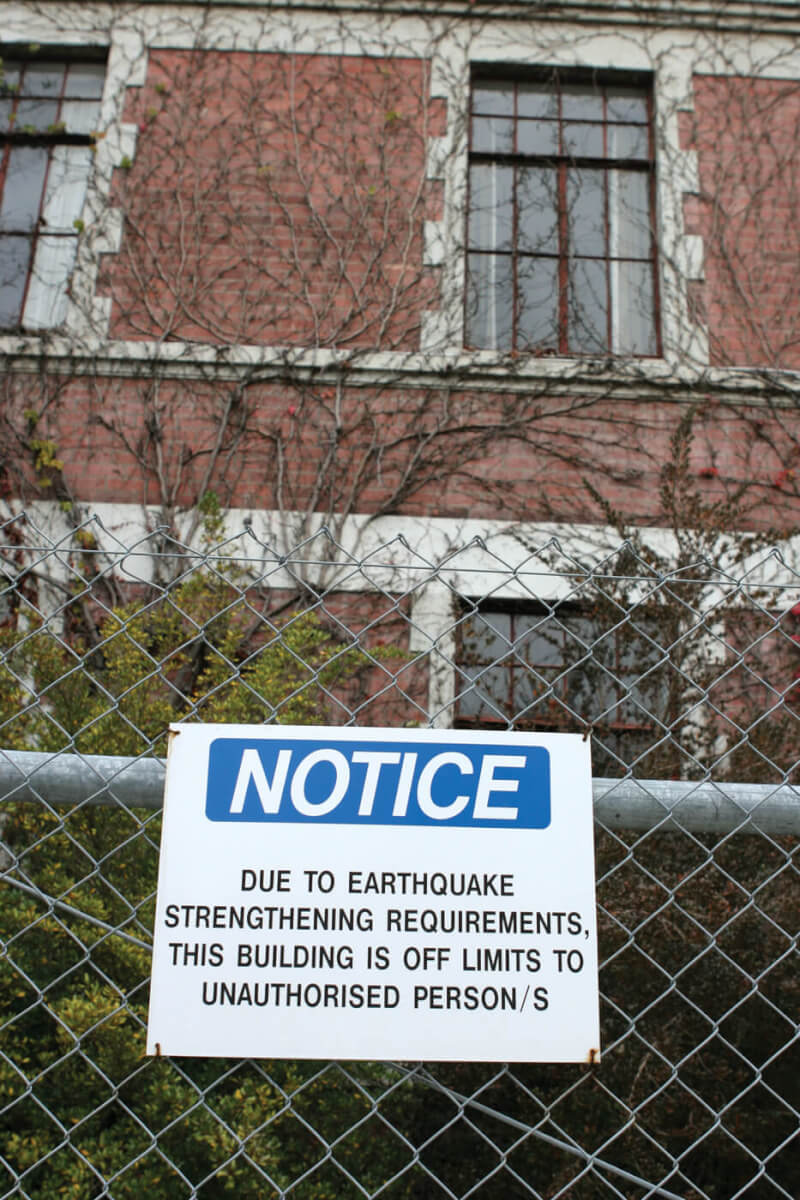IT’S A REMINDER.

Although residents of Southern California and other fault-riddled regions may be accustomed to riding out temblors, the latest earthquake swarm, which struck Imperial County, 100 miles east of San Diego, left residents on edge—and caused many people outside of the more common quakeready zones to wonder whether they would be prepared if an earthquake struck their area.
More than 300 quakes shook Imperial County in August 2012. Though most were minor, two registered magnitudes of 5.5 and 5.3—large enough to shatter windows, knock trailer homes off their foundations, cause sporadic power outages and gas leaks, and prompt hospital evacuations, reported Maria Peinado, a spokeswoman for the Imperial County Emergency Operations Center.
And they impacted nerves.
“It felt like there was quake every 15 minutes, one after another,” said Mike Patel, who manages Townhouse Inn & Suites in Brawley. “My kids are small, and they’re scared and didn’t want to come back inside.”
Though earthquake swarms like this aren’t necessarily the harbinger of bigger jolts to come, it’s a good reminder for those living in quakeprone areas—and even those who aren’t in what are typically described as “earthquake-heavy” regions—to prepare themselves … just in case.
Check out these seven simple tips offered by the Federal Emergency Management Association and the United States Geological Survey.
7 CRITICAL PREPARATION TIPS THAT YOU MUST DO BEFORE AN EARTHQUAKE OCCURS
1. HAZARD CHECKS
 To reduce your risk of injury or death, conduct a “hazard hunt” throughout your home, neighborhood, workplace and school before a quake strikes, advises FEMA.
To reduce your risk of injury or death, conduct a “hazard hunt” throughout your home, neighborhood, workplace and school before a quake strikes, advises FEMA.
Identify and fix hazards like unsecured televisions, computers, bookcases, furniture and unstrapped water heaters. Place breakable or heavier items on lower shelves put latches on cabinet doors to prevent them from opening during shaking and keep flammable materials in latched cabinets or on lower shelves.
2. SECURE YOUR HOME’S INTEGRITY
Next, inspect your home’s structural stability.
Whether you’re a homeowner or renter, take a look at the building’s foundation, roof, chimney, unreinforced masonry, unbraced cripple walls, soft first stories and vulnerable pipes.
Speak with a contractor or engineer (or talk with your landlord) to help you identify your building’s weaknesses and begin to fix them as soon as possible.
3. BECOME SHUT-OFF VALVE SAVVY
Learn where your electric, gas and water shut-off valves are located, and be sure you and your family members understand how to turn them off in case lines are damaged. Also make certain you have easy access to any tools you’ll need, like a wrench or pry bar, should the valve be stuck or blocked.
4. ASSEMBLE A DISASTER KIT
Put together disaster supply kits and store them in accessible locations at home, at work and in your vehicle.
Having emergency supplies readily available can reduce the impact of an earthquake. Your disaster supply kits should include food, water, flashlights, portable radios, batteries, a first-aid kit (see sidebar for a list of must-have items), cash, extra medications, a whistle, fire extinguisher, tools and a blanket. Also make sure you have a list of emergency contact information in your kit, including numbers of doctors and relatives, and a spare gallon or more of gasoline somewhere nearby.
7. PREPARE TO HELP OTHERS
In addition to readying your home and family, also make note of individuals in your neighborhood who could require assistance, such as the elderly or those with special needs.
You may even want to develop self-help networks between families and your neighborhood so that, if the need arises, you can pool your resources, tools, equipment and skills to assist one another.
DON’T DELAY
Though scientists have yet to perfect earthquake prediction techniques, you and your family can be ready when the ground starts shaking with these simple preparedness tips. In a worst-case scenario, they truly could make the difference between life and death.
Editor’s note: A version of this article first appeared in a 2012 print issue of American Survival Guide.





